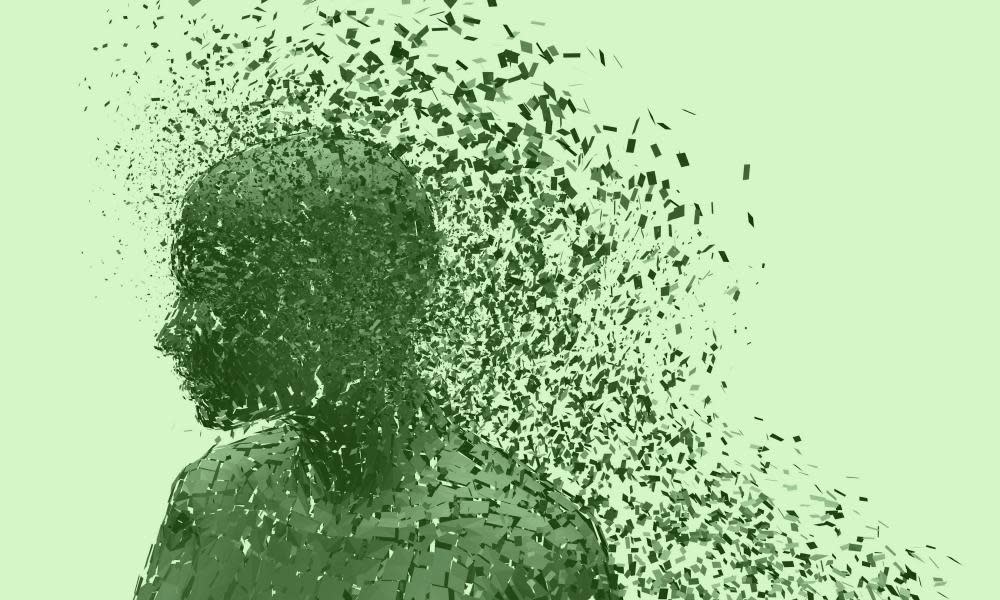I'm reinventing mental health care by putting patients in charge

A feeling of powerlessness dominated my experience of mental health services. And this feeling was at its worst when I was sectioned. Sectioning replicated aspects of the traumatic experience that initially caused my suicidal crisis. I felt trapped, captive and utterly out of control. I couldn’t escape. .
The limited control I had over my interactions with mental health professionals also had a negative impact on me. In the psychiatrist-patient relationship, the power lies with the psychiatrist. And in the community, mental health teams decided how often I would be seen, what kind of care I would receive and when the care would end. Each of these things made me feel vulnerable.
In the summer of 2012 I started to speak of my plans to set up Suicide Crisis, a centre to provide an alternative type of mental health care. However, many people were sceptical because I was a recently discharged psychiatric patient.
The traumatic experience I went through was profoundly damaging and distressing. Remarkably, though, I think it changed me into the kind of person who was able to overcome the many barriers to setting up the crisis service. I developed a determination and a tenacity, which I didn’t have before.
It’s entirely possible that someone can be both a psychiatric patient and a competent professional. But sometimes I’ve felt that people find this difficult to understand. In the four-and-a-half years we’ve been providing services, we’ve never had a suicide of a client under our care.
Our work has received national attention in the last 18 months. We have given oral evidence about our crisis centre to the health select committee and presented to the National Suicide Prevention Strategy Advisory Group, which is run by the government adviser on suicide. We are approached regularly by NHS professionals and commissioners, who refer to our centre as an example of best practice.
Perhaps society can start to think of people with experience of mental illness as having valuable knowledge of what works and what doesn’t, which helps them succeed in this field. There are times when my lived experience is as important as my formal training. I have a deep understanding of what it is like to be in crisis.
My experience has even helped when assessing clients’ suicide risks, as in the case of Aidan*, a patient at the centre. Aidan had been very depressed, then one day he came to his appointment with us and seemed very happy, almost euphoric. I recognised that sense of exhilaration, which a person may feel when they have made a decision to end their life, because I experienced that same euphoria myself in 2012. I recall it as a very intense experience, where all my senses were heightened. I was sure I would soon be leaving this world and could appreciate every aspect of it in what I thought were my remaining hours.
Aidan’s risk was clearly high, and we provided intensive support to ensure his survival. I immediately contacted NHS services so they could assess whether he needed to be sectioned. He wasn’t sectioned, but the NHS crisis team kept in contact with him that night.
After that, he asked us to support him and we saw him on a daily basis. We kept in regular contact with his mental health team and he continued to see them every week.
My experience of feeling disempowered when using mental health services is the reason we ensure our clients have a greater degree of control. They decide how often they see us, what kind of care they receive and when they are ready to leave us. Our male clients say they find this particularly helpful. They can feel especially vulnerable when they seek help; putting them in control helps to counteract this.
Early on we took the decision to employ an advising psychiatrist and other advising clinicians. They have expertise that we don’t. They advise us on individual client cases, which can be complex. And they helped us create links with the local mental health service.
However, the ethos of the charity and the way our service is set up and run are all from a lived experience perspective.
We are in regular contact with local mental health services because we are often helping the same people. Clients often feel able to tell us things they may not feel able to disclose to their mental health team. In such cases, we are keen to share that information, with the client’s permission.
The power balance between patients and mental health professionals has effectively been reinvented in our organisation. “You’re my boss,” our advising psychiatrist tells me. However, I prefer to see it as a levelling of power, a greater equality. We all have huge respect for each other’s different strengths and abilities. We all learn from each other.
*Identifying details have been changed
Joy Hibbins is founder and chief executive of Suicide Crisis
In the UK the Samaritans can be contacted on 116 123. In the US, the National Suicide Prevention Lifeline is 1-800-273-8255. In Australia, the crisis support service Lifeline is 13 11 14. Other international suicide helplines can be found at www.befrienders.org.
If you would like to write a blogpost for Views from the NHS frontline, read our guidelines and get in touch by emailing sarah.johnson@theguardian.com.
Join the Healthcare Professionals Network to read more pieces like this. And follow us on Twitter (@GdnHealthcare) to keep up with the latest healthcare news and views.
If you’re looking for a healthcare job or need to recruit staff, visit Guardian Jobs.

 Yahoo News
Yahoo News 
